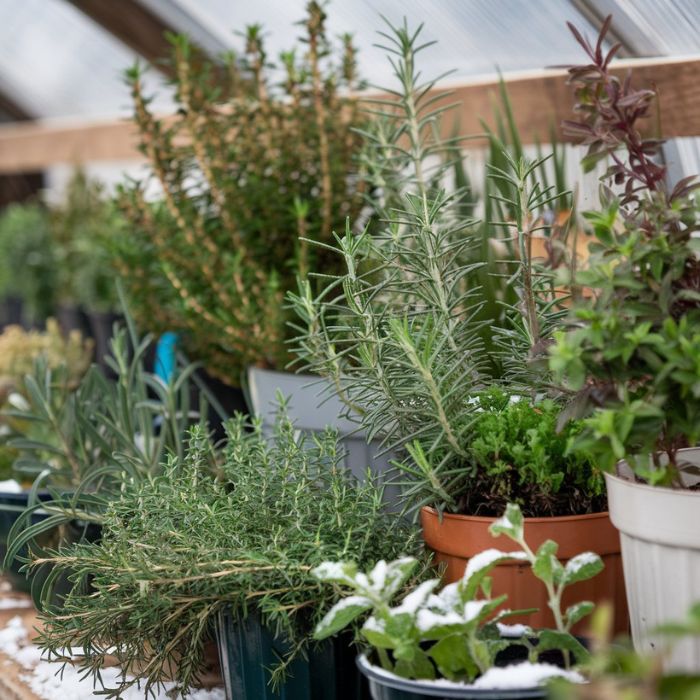How to Overwinter Herbs: Essential Tips for Keeping Your Herbs Alive During Winter
Herbs are a delightful addition to any garden or kitchen, offering fresh flavors for cooking and holistic health benefits. However, when winter comes knocking, many gardeners worry about how to keep their precious herbs alive through the cold months. Overwinter Herbs is an essential skill to ensure your plants can survive and thrive for future growing seasons.
In this comprehensive guide, we will explore the best strategies for overwintering herbs, which herbs are most cold-hardy, and the specific care each type needs to survive the winter season.
Why Overwinter Herbs?
Overwintering herbs refers to the process of helping plants survive through the winter so they can return in the spring. Not all herbs are perennial, but for those that are, learning how to protect them during colder months is crucial.
Key benefits of overwintering herbs include:
- Prolonged plant life: Many herbs will come back stronger if protected during the winter.
- Continuous harvest: Some herbs can still provide harvestable parts in colder months if properly sheltered.
- Cost savings: By keeping herbs alive, you won’t need to replace them annually.
Which Herbs Are Cold-Hardy?
Before we jump into specific overwintering techniques, it’s important to identify which herbs can naturally withstand colder temperatures and which ones need extra care.
Herbs That Can Survive Cold Winters
The following herbs are more resilient to frost and freezing temperatures:
- Thyme: Hardy down to USDA zone 5, thyme can typically handle light frost and snow if planted in the ground.
- Oregano: Like thyme, oregano is a tough perennial that can survive colder climates (USDA zones 5-10).
- Sage: Sage can withstand winter well, especially if provided with some mulch protection.
- Chives: Chives are perennials that tolerate cold and often come back stronger after a winter freeze.
Herbs That Need Extra Protection
Other herbs are not as hardy and require more effort to overwinter successfully:
- Basil: Basil is extremely sensitive to cold and frost. It won’t survive outdoors in most climates without intervention.
- Cilantro (Coriander): Cilantro prefers cooler weather, but severe winter temperatures will kill it off.
- Rosemary: While rosemary is a perennial in warmer climates, it may struggle in regions with harsh winters.
- Lemongrass: This tropical herb won’t survive freezing temperatures without being brought indoors.
How to Overwinter Herbs: Step-by-Step Guide
1. Identify Your Climate Zone
Before you start, know your USDA Hardiness Zone. This helps determine the minimum temperatures your region can expect in winter and will guide you in deciding whether to overwinter your herbs indoors or out.
2. Bring Herbs Indoors
For tender herbs like basil, rosemary, and cilantro, bringing them indoors is your best bet for survival. Here’s how:
- Choose the right location: Place herbs in a sunny window with at least 6 hours of light. Supplement with grow lights if natural light is insufficient.
- Adjust watering: Indoor herbs need less water in winter. Water only when the soil feels dry to the touch to avoid root rot.
- Maintain humidity: Winter air indoors is dry. Use a humidity tray (a shallow tray filled with pebbles and water) or mist your herbs to prevent drying out.
3. Mulch and Protect Outdoor Herbs
Hardy herbs can stay outdoors with some added protection:
- Apply mulch: A thick layer of organic mulch (straw, leaves, or pine needles) insulates the soil and roots, helping to regulate temperature.
- Cut back plants: Prune your herbs to reduce stress and focus energy on the roots.
- Cover with frost cloth: For particularly cold nights, cover your herbs with a frost cloth or even an old blanket to add extra warmth.
4. Use Cold Frames or Cloche Protection
A cold frame or cloche is a great way to protect herbs that are too large to bring indoors but not hardy enough to handle severe cold on their own.
- Cold frames: Small, transparent structures that function like greenhouses. They trap heat and protect plants from frost.
- Cloches: Bell-shaped covers placed over individual plants to shield them from frost and snow.
5. Container Gardening: Moveable Herbs
If you have herbs growing in containers, overwintering becomes much easier. Simply move the pots indoors or to a protected area like a greenhouse, garage, or sunroom. Be sure the plants still receive enough light and aren’t placed directly near heating sources, as this can dry them out.
6. Watering and Fertilization Adjustments
During the winter, most herbs enter a dormant phase where they require far less water and nutrients. Avoid over-fertilizing, as this can stimulate unwanted growth during a time when the plants should be conserving energy. Water sparingly and reduce the frequency compared to the growing season.
7. Monitor for Pests
Indoor plants can attract pests like spider mites, aphids, and whiteflies during winter. Inspect your herbs regularly, and if you notice any signs of infestation, act promptly by washing the plant with water, using insecticidal soap, or introducing beneficial insects like ladybugs.
Special Care Tips for Popular Herbs
Rosemary
- Indoors: Rosemary can dry out quickly in indoor environments. Misting the leaves helps to keep it hydrated, and occasional pruning will maintain its shape.
- Outdoors: If rosemary must stay outdoors, wrap the plant in burlap and cover the base with mulch to insulate it from freezing temperatures.
Basil
- Indoors only: Basil is extremely sensitive to cold and needs to be moved indoors well before the first frost. Place it in a warm spot with plenty of light, and pinch off leaves regularly to promote bushy growth.
Thyme
- Outdoors: Thyme is very hardy but still benefits from a layer of mulch. It will survive frost but may not produce much growth until warmer weather returns.
Oregano
- Outdoors: Similar to thyme, oregano can survive freezing temperatures. Cut it back in the fall, and cover it with a protective mulch layer.
Cilantro
- Indoors: Cilantro can continue to grow indoors through the winter months but will appreciate cooler indoor temperatures. Be careful not to overwater, as this herb is prone to root rot.
Final Thoughts on Overwintering Herbs
Overwintering your herbs can be simple with the right preparation and care. While some herbs are naturally equipped to survive frosty conditions, others will need the warmth and protection of an indoor environment. By following these techniques, you can ensure that your herbs come through the winter healthy and ready to thrive in the spring.

